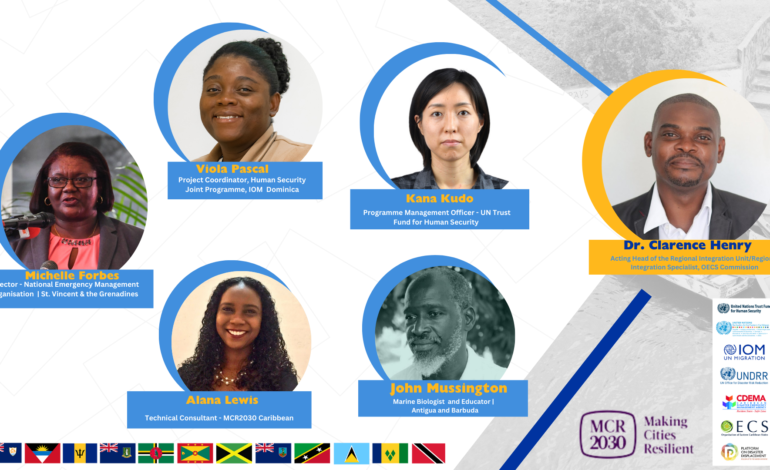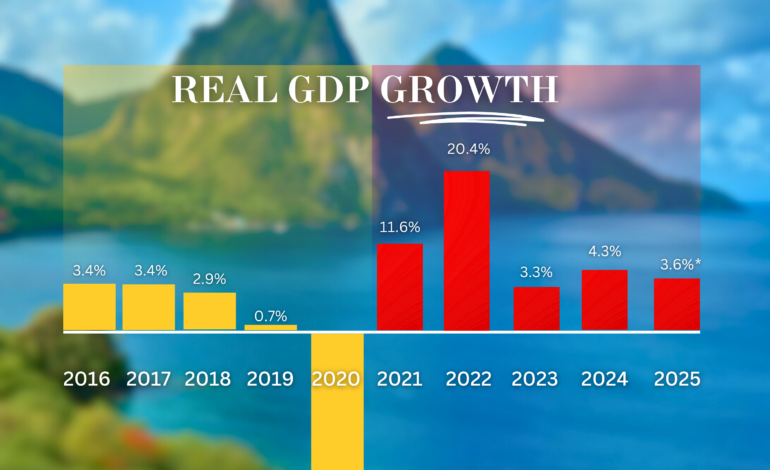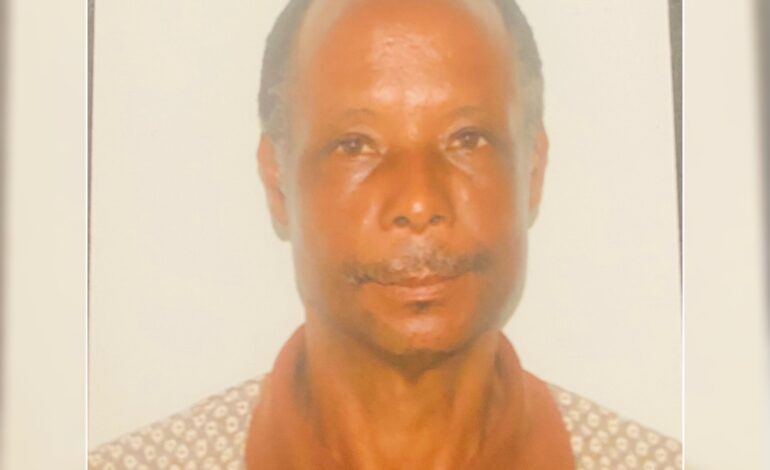
The International Organization for Migration (IOM) and the United Nations Office for Disaster Risk Reduction (UNDRR) jointly hosted a pivotal regional webinar on November 27, 2024, titled: “Human Security, Human Mobility, and Multi-Hazard Early Warning Systems to Achieve Resilience in the Caribbean Region”. This dialogue brought together regional experts, community leaders, and policymakers to discuss the increasing threats of disaster displacement, environmental migration, and climate change in the Caribbean.
The webinar highlighted the importance of using the human security approach and the need for community participation to effectively address the multifaceted challenges faced by Caribbean nations.
In recent years, the Caribbean has witnessed a surge in displacement events, including those caused by hurricanes, floods, earthquakes, and volcanic eruptions. These events have had devastating consequences for affected populations, forcing many to seek refuge elsewhere. To mitigate the impact of these disasters and promote sustainable recovery, it is crucial to resource and implement multi-hazard early warning systems that are embedded with the human security principles and dimensions.
Viola Pascal, Project Coordinator at IOM, emphasized the need to consider the broader context of human security, which encompasses not only physical safety but also social, economic, and environmental well-being.
“Human security threats increase for displaced people who are vulnerable not only to impending hazards but also to limitations in protection and empowerment initiatives. Thinking through the lens of human security ensures no one is left behind.”
Kana Kudo, Programme Management Officer at the UN Trust Fund for Human Security, further elaborated on the concept of human security, highlighting its relevance to sustainable development. She stressed the importance of addressing the root causes of displacement and migration, such as poverty, inequality, and climate change.
“Human security is a paradigm shift. It recognizes threats and insecurities that are interconnected, transversal, and often compounding. By placing displaced people and receiving communities at the heart of interventions, we can address vulnerabilities holistically and develop shared objectives for intergovernmental collaboration.”
The role of communities in disaster preparedness was underscored by John Mussington, a marine biologist and community advocate from Antigua and Barbuda, who reflected on Hurricane Irma’s impact:
“Local governance represents and serves the needs of communities. Their inclusion in planning is absolutely essential. Barbuda’s survival during Irma was due in part to years of preparation, where every household knew how to utilize warning systems and prepare for the worst.”
Likewise, Michelle Forbes, Director of the National Emergency Management Organization (NEMO) in St. Vincent and the Grenadines, shared practical insights:
“We’ve seen how regional coordination and inter-sectoral partnerships can strengthen our response to disasters. But building resilience must also happen within communities, empowering them to lead recovery efforts and adapt to challenges. Community resilience is key.”
Experts stressed the compounded risks of climate change on vulnerable communities. Alana Lewis, Technical Consultant for the Making Cities Resilient 2030 (MCR2030) initiative with UNDRR, provided critical data:
“Between 1950 and 2016, the Caribbean experienced 324 disasters, resulting in $22 billion in economic losses and 250,000 lives lost. Climate change is not just a risk multiplier; it’s creating new hazards. Deliberate and urgent action is required to minimize these risks and protect livelihoods.”
She further highlighted the role of the MCR2030 initiative in building urban resilience, explaining how disaster risk reduction can be integrated into city planning to protect people and infrastructure.
The webinar concluded with a lively Q&A session, where participants had the opportunity to ask questions and share their perspectives.





